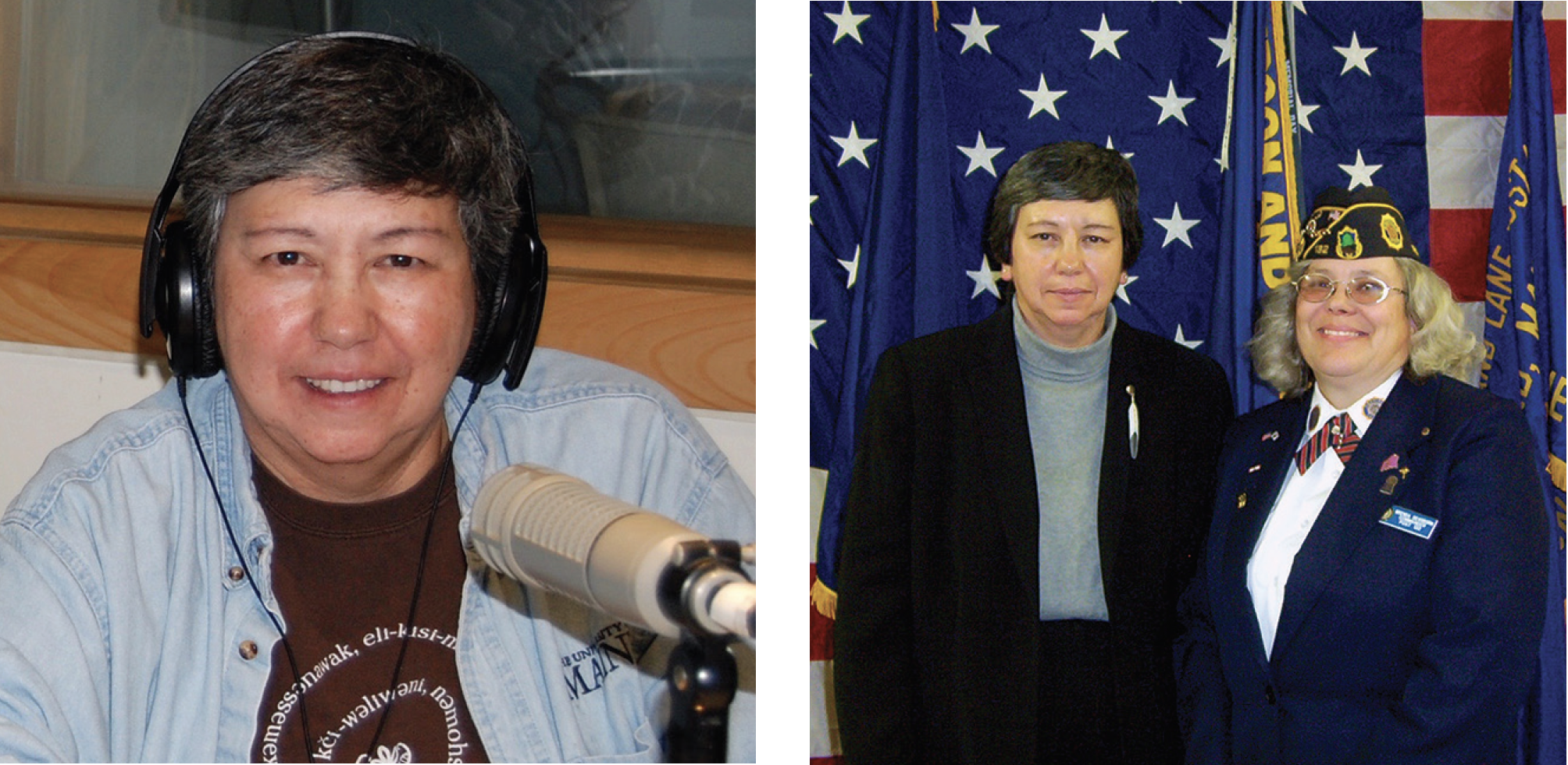FOR DECADES DONNA LORING ’86, ’17 Hon. L.H.D. has been advocating for others in her multiple roles as a citizen, public servant, and policy maker.
Her advocacy for people and causes is deeply rooted in her life experiences. Loring grew up living with her grandmother on Indian Island, Maine. In her late teens in 1966, she joined the Women’s Army Corps (WAC) and served during the Vietnam War. She earned a degree in political science, as well as an honorary doctorate she received from UMaine in 2017. Loring has worked in law enforcement, was elected to the Maine State Legislature, and served as aide-de-camp to then-Governor Angus King. She is a published author and playwright, a tribal member of the Penobscot Indian Nation, and a well-regarded champion of Maine’s Native populations.
Loring led the effort to include, in social studies classrooms across Maine, a history unit on the Wabanaki Confederacy, the confederation of Maine’s five principal Native American nations. As an advocate for filling an enormous hole in the teaching of Maine’s history, she further elevated her stature as perhaps the most influential voice of Maine’s indigenous peoples.
Formal public service began for Loring in 1966 when she joined the Women’s Army Corps (WAC) and was posted to a U.S. Army base near Saigon in then-South Vietnam. She was one of few enlisted women in the Vietnam war who served in a combat zone and earned a combat patch.
Several years later, Loring graduated from the Maine Criminal Justice Academy (MCJA). She served as the police chief for the Penobscot Nation from 1984 to 1990. Upon her appointment Loring became the first female MCJA graduate to become a police chief in Maine. During that time she earned her bachelor’s degree in political science at UMaine. She later became the first woman appointed head of security at Bowdoin College.
Loring spent 12 years in the Maine State Legislature as an elected representative of the Penobscot Nation. The two representatives are appointed to committees and may debate legislation. Penobscot and Passamaquoddy citizens of voting age also elect members of the Maine House and Senate to represent the respective municipalities in which they live.)
While in the Maine House, Loring took part in the Eleanor Roosevelt Global Leadership Institute, and was one of just 14 legislators nationwide chosen to travel to travel to Chile, where the participants learned about the country’s economic and social development, and foreign trade.
Besides her legislation regarding Maine’s social studies curricula, Loring pursued policy changes related to tribal sovereign rights, names of locales with names deemed offensive to Native Americans, and casino regulation. Her memoir, In the Shadow of the Eagle (Tilbury House Publishers, 2008) reflects on her legislative experience.
Loring’s career also took her into the academic realm in 1997 as coordinator of Indian student affairs and multicultural programs at the University of Southern Maine. Loring also hosts a monthly show, titled “Wabanaki Windows,” on WERU-FM, a Maine-based noncommercial community radio station.
Loring spent several years serving as the planning and strategizing entity for Four Directions Development Corporation. She used her state and tribal networks in an effort to create a sustainable cultural tourism industry for Maine’s Native communities.
In May, the University of Maine awarded Loring an honorary doctorate in humane letters at Commencement. UMaine President Susan J. Hunter referred to Loring as a person “whose vision, leadership, and outstanding [career] contributions…have made our world a better place.” Th e choice of Loring as recipient of the Alumni Association’s Career Award was coincidentally determined before the university revealed its selection of her for an honorary degree. Loring was previously selected in 1999 as a recipient of the Maryann Hartmann Award, bestowed upon a Maine woman for exceptional leadership and influence in multiple roles.
